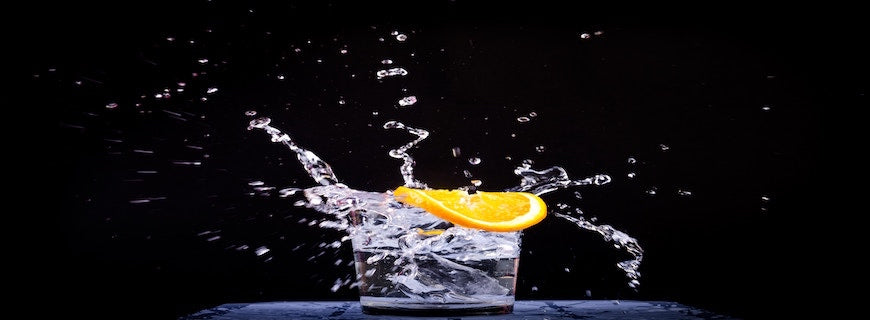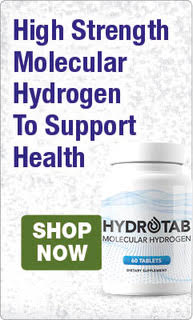Drinking high-quality water is the best fluid to drink, period. In fact, many of the other fluids that we drink harm the body. This article is designed to give you all the information you need, so that you can make an informed choice as to the best fluid to consume to optimise your health and wellness.
The vast majority of people are unwittingly poisoning themselves by drinking the wrong types of fluid.
I've heard it said many times that drinking fizzy drinks or tea and coffee is just as good as water when it comes to hydrating yourself. But that’s a myth. There are aisles filled with drinks in the supermarkets, but none of the options therein compare with pure natural water. All other drinks contain chemicals and plastics that negatively impact health.
By laying out the facts in this article, I hope that you'll feel inspired to drink high-quality water in place of other drinks. Let's start with the most commonly consumed beverages.
Coffee
Most people consume coffee on a daily basis and feel like they couldn’t live without it. But did you know that caffeine is a nerve poison?
Caffeine is stored in the leaves of the tea plant and coffee beans, and is designed to ward off pests thanks to the presence of the enzyme phosphodiesterase.
Ingesting this enzyme is the kiss of death for animals in the wild as it alters memory, judgement and impairs natural survival instincts.
The average cup of coffee contains 94.8 mg of caffeine. Used as a pick-me-up, caffeine-rich coffee disrupts homeostasis in the body, using up stored energy that is meant for emergency situations.
Drawing from these emergency reserves daily can deplete life energy and lead to disease.
Tea
Britain is one of the greatest tea consumers in the world: an average Brit will consume 1.9kg tea per year.
The colour in tea comes from tannic acid, a compound used to harden leather. The main active agent in tea is caffeine, which causes dehydration.
Rather than hydrating you, excessive tea consumption can cause dehydration.
Learn More: Unusual Symptoms of Dehydration & How Best to Tackle Them
Alcohol
Most people know that drinking alcohol won’t provide hydration. In fact, alcohol is a diuretic, and as such, it pulls water out of your cells.
The stress that alcohol places on the body encourages the release of endorphins, which have an opiate-like effect on the body. The same endorphins that keep a runner hooked to attaining the runners’ high are created when we drink alcohol.
There are many reasons that should deter you from consuming excessive amounts of alcohol such as liver damage and suppressing the immune system. Additionally, drinking alcohol can lead to anxiety and a depressed mood.
Alcohol also disrupts the emergency water supply in the brain, which can lead to hangover headaches.
Bottled Water
Bottled water is contaminated with hundreds of tiny plastic particles. Researchers have found an average of 325 microplastic particles per litre of bottled water.
These microplastics are small enough to pass through endothelial cells and other protective tissues in the body.
This means that microplastics can find their way into the bloodstream and even into major organs.
Worryingly, these tiny particles can also make their way through the placental barrier.
What we know is that microplastics can accumulate in our bodies. Frederick vom Saal, professor emeritus of biological sciences at the University of Missouri, stated:
“In animal models and in epidemiological studies in humans, we have a correlation between plastic exposures and known health hazards.”
Plastic pollutants are implicated in many cognitive issues and as such are thought to have negative biological effects. This is true for our bodies and the environment as a whole.
One 2017 study exposed the harsh truth: that a massive 79% of all plastic that has ever been produced is now in nature or a landfill. With up to 12 million tonnes of plastic being poured into the sea in 2010 alone.
Learn More: Water Filters for Plastics: Necessary or Not?
Soda and Fizzy Drinks
Fizzy drinks are made of unfiltered tap water, so you’ll be ingesting whatever nasties that make their way into the water supply.
The refined sugar and artificial colouring used in fizzy juice, meanwhile, is notoriously harmful to health. Even if you opt for a diet drink, you’ll be consuming aspartame, which is deleterious.
It isn’t just the caffeine, flavouring, colouring, sugar or aspartame in fizzy drinks that can affect your health, though.
Researchers from Birzeit University in the Palestinian West Bank found that it’s the actual “fizz” in fizzy drinks that produces ghrelin, the hunger hormone.
Meaning that fizzy drinks will stimulate your appetite and promote fat storage.
Sugary drinks can cause tooth decay and so should be avoided. The Soft Drinks Industry Levy (SDIL) commonly known as the “sugar tax” came into force in the UK in an attempt to detract people from buying sugary drinks.
However, as I have outlined, it isn’t just the sugar that is the problem. Fizzy juice is also often filled with caffeine and guarana – and these stimulants are addictive.
Energy Drinks
Energy drinks stimulate the central nervous system with caffeine and other compounds like sugar, taurine or aspartame.
This toxic blend has been found to be fatal, with over 34 deaths directly attributed to energy drinks.
Swedish authorities have warned that energy drinks shouldn’t be consumed after exercise or with alcohol.
Additionally, the extra spike in energy felt when a person consumes an energy drink will result in a crash in energy as the drink wears off.
Norway, Denmark and France have banned energy drinks from all stores, except pharmacies due to the high caffeine content.
One study found that just two cans of energy juice can cause arteries to dilate.
The Bottom Line
Drinking pure high-quality water will release endorphins and stimulate the nervous system. Most other drinks cause dehydration, which can lead to disease over the long term.
Despite corporate soft drink giants making US $31,483 million per year (in the UK alone), there is no substitute for water when it comes to hydration.
Related: What’s the Healthiest Water You Can Drink?
Written by best-selling author and integrative nutrition health coach Rowanna Watson, who has a passion for natural health. Rowanna is an expert in all areas of holistic health, plant-based nutrition, detoxification and personal development.
Water for Health Ltd began trading in 2007 with the goal of positively affecting the lives of many. We still retain that mission because we believe that proper hydration and nutrition can make a massive difference to people’s health and quality of life. Click here to find out more.
Post updated 12th July 2024




























Leave a comment